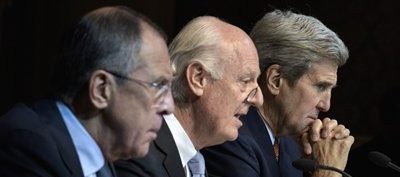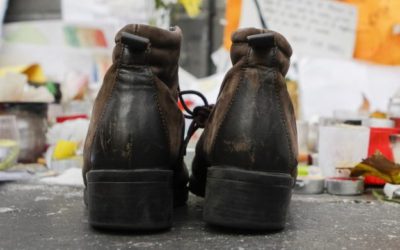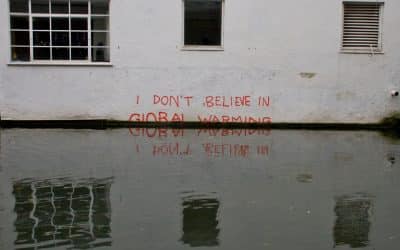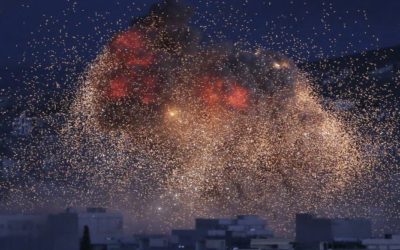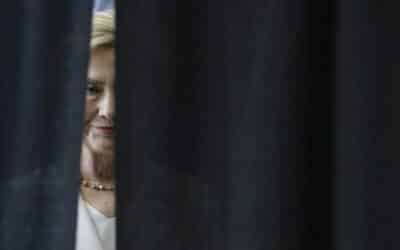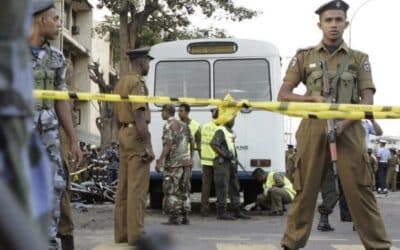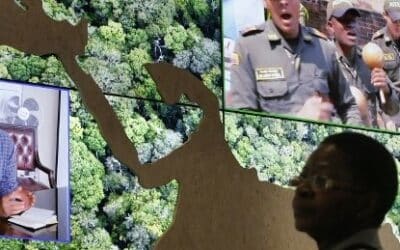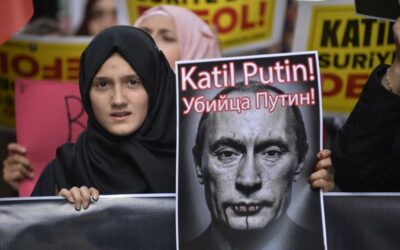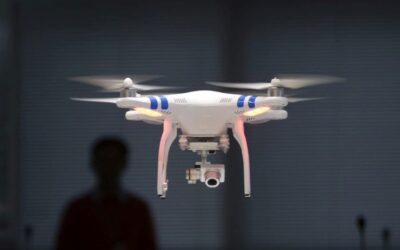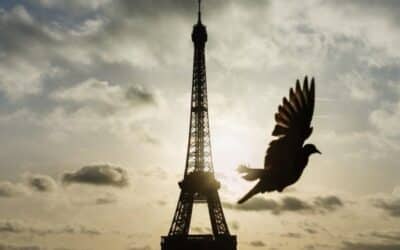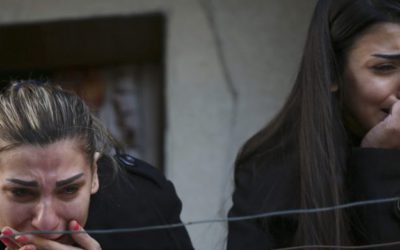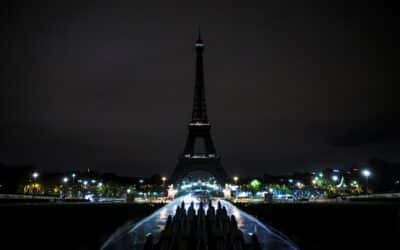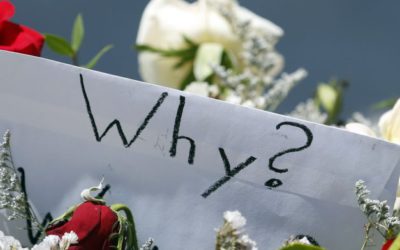Newsfeed
Our future is in their hands
Young people from around the world express their views in our “snapshot” series that captures the concerns of our future leaders.
Jobs around the world, in photos
Fishermen, weavers, painters, jacks-of-all-trades, builders, artisans and craftsmen are captured in these photographs taken by globetrotters from a French not-for-profit.
Tackling the Big Issues
News-Decoder has been hitting the world’s biggest issues hard. Here’s a selection of our stories on the really major themes.
Building a carbon-free future
The Paris climate change talks sent a signal a carbon-free future is within reach. Now, everything can start to change. Here are some solutions.
Avoiding mistakes in Syria
Should the U.S. intervene more aggressively in Syria? History tells us it could lead to mistakes. And blocking immigrants would betray U.S. values.
Pauline turns the page
Pauline Bock has helped get News-Decoder off the ground. We wish her well as she moves to a new journalism challenge in London.
Is Saudi Arabia’s coalition a bluff?
Saudi Arabia has announced an impressive Muslim coalition to fight radical Islamism. But it’s most likely bluff to protect Riyadh’s political interests if a diplomatic solution is found in Syria.
The far right and the French dilemma
France’s far-right National Front party keeps gaining ground. Its leader wants to be president. There’s a chance I’ll face a distasteful choice in 2017.
What I learned from the Paris attacks
Study abroad is about being afraid. The Paris attacks have forced me to confront an unexpected fear and allowed me to discover the beauty of France.
Paris climate pact: an “inadequate miracle”
The Paris climate change agreement is inspiring for pulling out an accord where so many have failed, yet disappointing for not ensuring a carbon-free economy.
Chelsea: “Our world has become interconnected”
Traveling to unusual places can produce the most rewarding experiences, says Chelsea Boorman, who wants to counter violent extremism and terrorism.
“I would have to Google that.”
Young voters could make a major difference in next year’s U.S. presidential election. But only if they are registered to vote. And that’s not always easy.
Far-right surge reshapes politics in France
Far-right leader Marine Le Pen has transformed France’s political landscape, challenging the dominance of parties that have alternated in government for decades.
Why so many climate doubters in the U.S.?
As global negotiators hammer out an unprecedented climate accord in Paris, most Americans don’t believe climate change is a very serious problem.
Melting ice and the frog syndrome
Melting ice, hamster wheels and grass curtains — Paris is an open-air exhibition during global climate talks. But is the best metaphor a boiling frog?
Filling the knowledge gap
We all have biases, but it’s important to understand viewpoints different from our own. Here’s how to avoid falling into the wolf trap.
I’m worried for Europe
The attacks in Paris have fanned security fears and nationalist feelings. I am a young European who grew up in a free Europe, and I am worried.
Trump’s anti-Muslim blast: True to form
The more outrageous his claims, the higher U.S. presidential hopeful Donald Trump rides in the polls. Why?
No quick victory over ISIS in Syria, Iraq
Can increased air strikes by a U.S.-led coalition and a few hundred special forces bring the Islamic State into submission in Syria and Iraq?
Two views on Hillary: “Yes, she can.”
Two News-Decoder “ambassadors” offer their thoughts on Hillary Clinton’s campaign to become the next U.S. president.
Terror lessons from an island nation
To see the future of national life after terror attacks, France or other countries blown by its ruthless wind could learn from Sri Lanka’s hard lessons.
Climate talks: end of the beginning
Climate negotiators will likely come up with a landmark deal to curb carbon emissions. But it will be just a start — the end of the beginning.
A transgender serving her community
Dee Colon is a transgender who has lived most of her life in a quiet New York community. Staying close to her roots has helped her survive.
Maria Isabel: “Children need our attention.”
“If we invest in children’s education, we guarantee a better future for our planet.”
Woodrow Wilson: Racist or Progressive?
He was U.S. president and won the Nobel Peace Prize. But should Woodrow Wilson’s name be removed from a U.S. university because he was a racist?
Two weeks on, Paris still mourns
Flowers, candles and messages of love mark the sites of the Paris attacks where survivors and mourners still congregate, two weeks after the massacres.
New Western drive not enough to defeat ISIS
The attacks in Paris have given new impetus to the struggle against extremism, but they also highlight the failures and limitations of Western policy.
No end to scandals & censure for world sport
New doping and corruption allegations besmirch the custodians of international sport — on a whole new scale.
The struggle to end violence against women
Despite the UN’s longstanding commitment to end violence against women, females continue to experience physical and sexual violence, especially during war.
Climate change: “Now we have a chance.”
The Paris climate talks could mark a turning point in the fight against global warming even if countries’ commitments fall short now, a French envoy says.
The limits of Russian muscle-flexing
The shooting down of a Russian warplane by Turkey could mark a turning point in President Vladimir Putin’s military muscle-flexing.
Drones: Weapons turned business boon
They can deliver medicine and kill from afar. Drones hold huge promise, but legal, security and regulatory questions hover over their future.
Why care about Syrian refugees?
It is worrying that young adults in the United States are so uninformed about the Syrian refugee crisis. Here are some basics.
East Europe hardens refugee stance
Following attacks in Paris by Islamist extremists, East and Central European countries’ reluctance to welcome refugees has turned to outright opposition.
Ethics and reporting on Syrian refugees
“As an ethical journalist, I needed to address the Syrian refugee crisis truthfully and give a voice to the voiceless.”
Yuki: “The world is a small village.”
“My Slavic friends helped me learn English and Bosnian/Croatian/Montenegrin/Serbian (BCMS).”
U.S. candidates prodded into security debate
Attacks in Paris have jolted U.S. presidential candidates into advocating tougher action in Syria without committing large numbers of U.S. troops, with Republicans favoring curbs on Syrian refugees.
A brief guide to the Paris climate summit
The Paris climate summit, or COP 21, is starting soon. Here’s background on previous meetings and details on what negotiators want to achieve this time.
One minute, one hour, one day
Small units of time make the difference between life and death when acts of terror occur. Being in the wrong place at the wrong time is what we dread. Being lucky is all we can hope for.
Thoughts on the Paris attacks
Three News-Decoder followers offer their thoughts on the Paris attacks.
Lookouts on the watchtower
“What if there is no pack? What if we don’t know what happened?” Elaine Monaghan reflects on the need for journalists on the front lines.
Shame, blame and denial
With the Islamic State luring young people to jihad, many European Muslims are ashamed they cannot offer their children an alternative dream.
A time to reflect
Extremist attacks are cause for concern, but they force us to reflect on how to protect our values. And how to co-exist with fellow humans, also scared.
Eiffel Tower, “I Internalize”
“Today I stand tall/Ambushed, petrified and weeping/I internalize”
War as an end in itself
After the Paris attacks, politicians are combative. But what if Islamic State’s goal was an escalation of conflict and Western boots on the ground?
Terrorism: A Global Phenomenon
It’s an age-old tactic, but experts say terrorist attacks have recently grown in breadth and intensity. Most recent attacks have occurred in five countries.
A new campaign of global jihad?
Carnage in Paris, the Sinai and Beirut appears to carry a clear message: Those who combat Islamic State can expect their own civilians to be targeted.
Why the Fed matters
The U.S. central bank — the “Fed” — is expected to raise interest rates soon, the first monetary tightening in years. Here’s why it matters to all of us.
Essential climate change reading
It’s a global problem that will require global solutions. Here’s a snapshot of attitudes around the world toward climate change. Must reading.
A black woman, with a little else mixed in
I am half-Chinese, half-Guinean. Sometimes it’s hard to answer the question, “Where are you from?”


